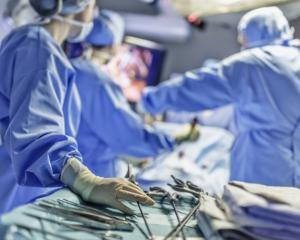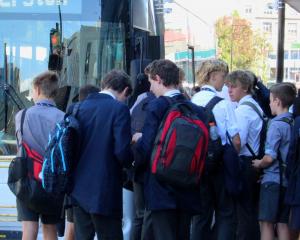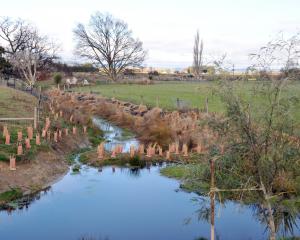The 20 new Catholic cardinals are from 18 countries with none from the United States and only one from the Vatican bureaucracy, and he is Moroccan born. Pope Francis continues to surprise.
Among the cardinals is Wellington's Archbishop John Dew (66) and the Tonga's Bishop Soane Mafi.
Cardinal Dew, who received theological training at Holy Cross College in Mosgiel (since closed), did achieve some prominence at the Bishops' Synod on the Eucharist at the Vatican in 2005 when he promoted the view that divorced and remarried Catholics should be able to receive the Eucharist (Communion).
He is the only native English speaker among the new cardinals.
The Pope, aged 78, has now appointed a quarter of the 125 ''cardinal electors'', which could be vital in the election of the next pope (cardinals over the age of 80 do not vote).
''The cool Pope'' is, as expected, finding it tough to deal with the entrenched views and personalities of the Vatican itself, and shifting Vatican power away from the developed world should help.
He will have spurred further old-school opposition when he said the Curia was infected with careerism, scheming, greed and spiritual Alzheimer's.
The church is the largest conservative organisation in the world, and shifting it is a monumental and skilled task calling on all Pope Francis' wisdom.
Just because he undertakes humble acts and is more Christ-like in his attitudes and actions than many of his predecessors does not mean he is in any way naive or lacking in strength.
As Cardinal Dew put it, he is doing an amazing job of reaching out to people and ''showing the world that action can speak louder than words''. ''He's a master at symbolic action that's having an impact.''
Time magazine made Pope Francis, the first non-European pope since the Syrian Gregory III in 741, its person of the year for 2013, and he has, indeed, been a breath of fresh air.
His ''Who am I to judge?'' proclamation showed that relationships were as important as doctrine and rules. His statements on gays and women and his interfaith moves have been applauded by many liberals and others in the West.
He is even due to publish an encyclical about climate change. But, at the same time, Pope Francis, who worked briefly as a chemical technician and a nightclub bouncer before training as a priest, remains deeply conservative on several matters close to the hearts of ''progressives''.
He has affirmed basic Catholic doctrine on abortion, artificial contraception, and homosexuality.
Although he might say gays should not be marginalised, he maintains Catholic views against homosexual acts and opposed same-sex marriage in Argentina when he was a cardinal.
Women should be ''valued'' but that does not mean they could ever be priests, and his views on women's role in marriage are traditional.
While some in the West might look for change in time on such matters, growth of the 1.1 billion-member church is in the developing world, notably Asia and sub-Saharan Africa, parts of the world where religious attitudes tend to be more fundamentalist.
Nonetheless, the Pontiff has made giant strides in reinvigorating attitudes towards the church as well as within the church itself. He has inspired both inside and outside Catholicism. He has done so through humility and grace, with the right approach from the start.
When he first met the crowd in St Peter's Square in Rome his initial move was not to bless the multitude but rather to ask for the people's blessing.
And so it went on through various actions and statements.
The appointment of cardinals is one of the most important steps he takes because they are the church's leaders and advisers.
Again, he has been willing to break with traditions and spread the wings of the church. Again, he has surprised, believing church leadership should reflect changes in Catholic populations and priorities.
Next month, he is to summon the cardinals to Rome for ''to reflect on the orientations and proposals for the reform of the Roman Curia''. What further surprises await?












